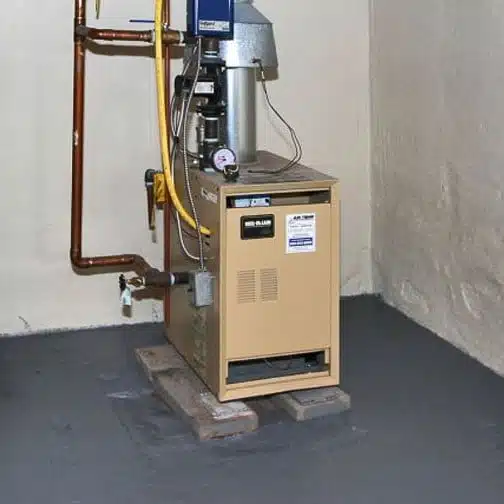heating FAQ
When Is It Time To Replace Your Boiler?
Short Answer: It's time to replace your boiler when you notice warning signs like increased energy bills, frequent repairs, unusual noises, or leaks. Also, consider replacing it if it's nearing its 15-20 year lifespan. Always factor in its performance, your comfort, and environmental impact.

The boiler is the heart of our homes, beating away to provide us with hot water and heat when we need it most. However, like all machinery, a boiler has its own lifespan, after which replacement becomes not just a choice, but a necessity. This article will guide you through understanding when it’s the right time to replace your boiler.
The Life Expectancy of Boilers
Generally, a well-maintained boiler should last between 15-20 years, but this can vary significantly depending on the type of boiler, quality of installation, and how well it’s maintained. Factors like its usage patterns, water quality, and your geographical location can also impact its longevity.
Warning Signs Your Boiler May Need Replacement
Boilers, like any mechanical equipment, communicate their health status through certain signs and signals. It’s essential to understand and pay attention to these warning signs as they could suggest that your boiler is on the brink of failure or has become inefficient.
- Inefficiency: Rising energy bills or decreased heat output can be indications of boiler inefficiency. This inefficiency typically happens due to wear and tear or internal components failing.
- Frequent Repairs: While occasional repairs are normal, if you find your boiler breaking down frequently or need to call in a technician regularly, it could be a sign that your boiler is reaching the end of its life cycle.
- Unusual Noises: Boilers tend to make some noise, but if you start noticing unusual sounds such as hissing, clunking, or banging, it’s worth having a professional look at it.
- Leaks: If you find water leaking from your boiler, don’t ignore it. Leaks often mean that internal parts are corroding or breaking down, which can lead to more significant problems.
- Age: The age of your boiler plays a significant role in determining whether a replacement is due. If your boiler is nearing or has surpassed its average lifespan of 15-20 years, it’s time to start considering a replacement.
Considering Boiler Performance
Your boiler’s performance directly affects your household’s comfort, energy costs, and environmental impact. An underperforming boiler can result in uneven heating, an inconsistent supply of hot water, and increased energy usage. If your boiler struggles to maintain a comfortable temperature, or if you’re noticing hot and cold spots around your home, it’s a sign that your boiler is not working as it should.
Newer models tend to be more energy-efficient and reliable, reducing the risk of breakdowns and offering better performance. Modern boilers also typically use less energy to produce the same amount of heat, leading to lower energy costs. Upgrading to a high-efficiency boiler can, therefore, provide a higher level of comfort, lower your energy bills, and reduce your carbon footprint.
When to Repair Vs. When to Replace
The decision to repair or replace often comes down to cost. A general rule of thumb is if the repair cost is over half the cost of a new boiler, replacement is the better long-term solution. It’s also worth considering the boiler’s age – frequent repairs on an older boiler are often a sign that more issues are on the horizon.
Understanding Boiler Replacement
The process of boiler replacement involves more than just swapping out your old boiler for a new one. It requires careful planning and consideration. It’s important to choose a boiler that suits your home’s size and your family’s hot water and heating needs. Boilers come in different types and sizes, and the right choice can ensure you get the maximum efficiency and longevity from your investment.
The energy rating is a critical factor to consider. This rating gives you an idea of how efficient the boiler is at converting fuel into heat. A boiler with a high energy rating will consume less fuel for the same amount of heat, leading to lower energy bills and a reduced environmental impact.
Environmental Impact and Energy Efficiency
Old, inefficient boilers not only lead to high energy bills, but they also have a greater negative impact on the environment. Upgrading to a more energy-efficient model can reduce your carbon footprint and may even qualify you for incentives or rebates.
Conclusion
Knowing when to replace your boiler is crucial for ensuring the comfort, safety, and energy efficiency of your home. Pay attention to the warning signs and remember to carry out regular maintenance to prolong its lifespan. Remember, timely replacement can save not just money, but also avoid potential safety hazards. Stay warm, safe, and efficient!
